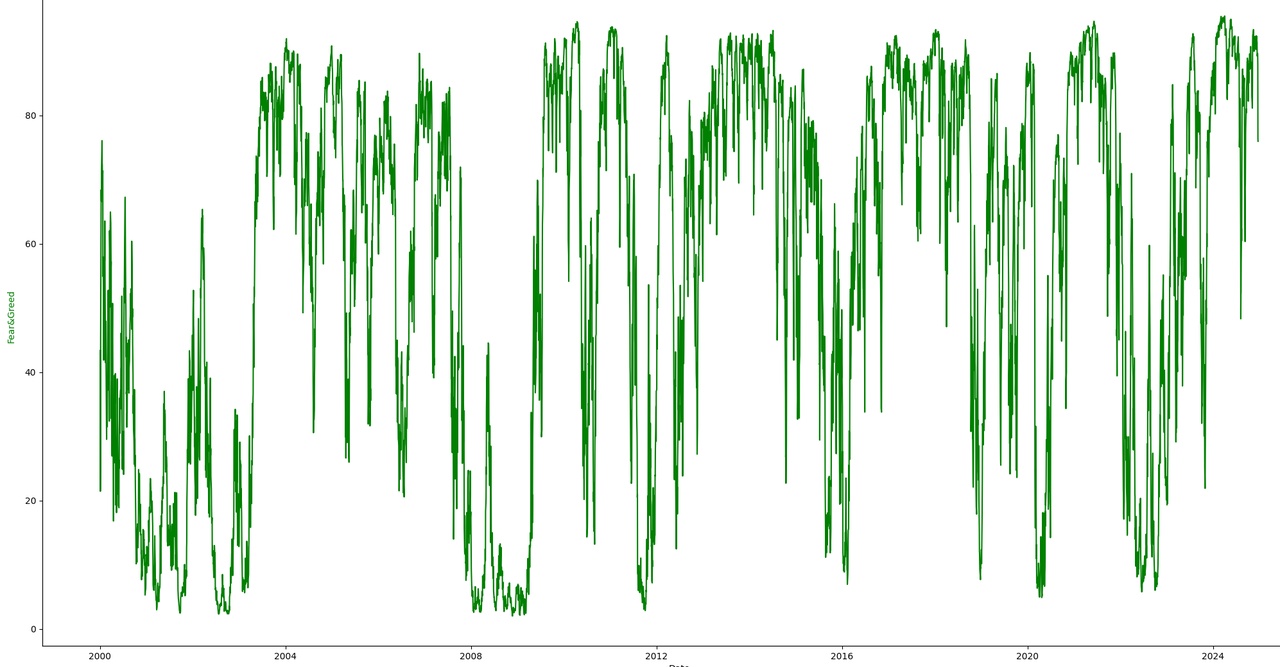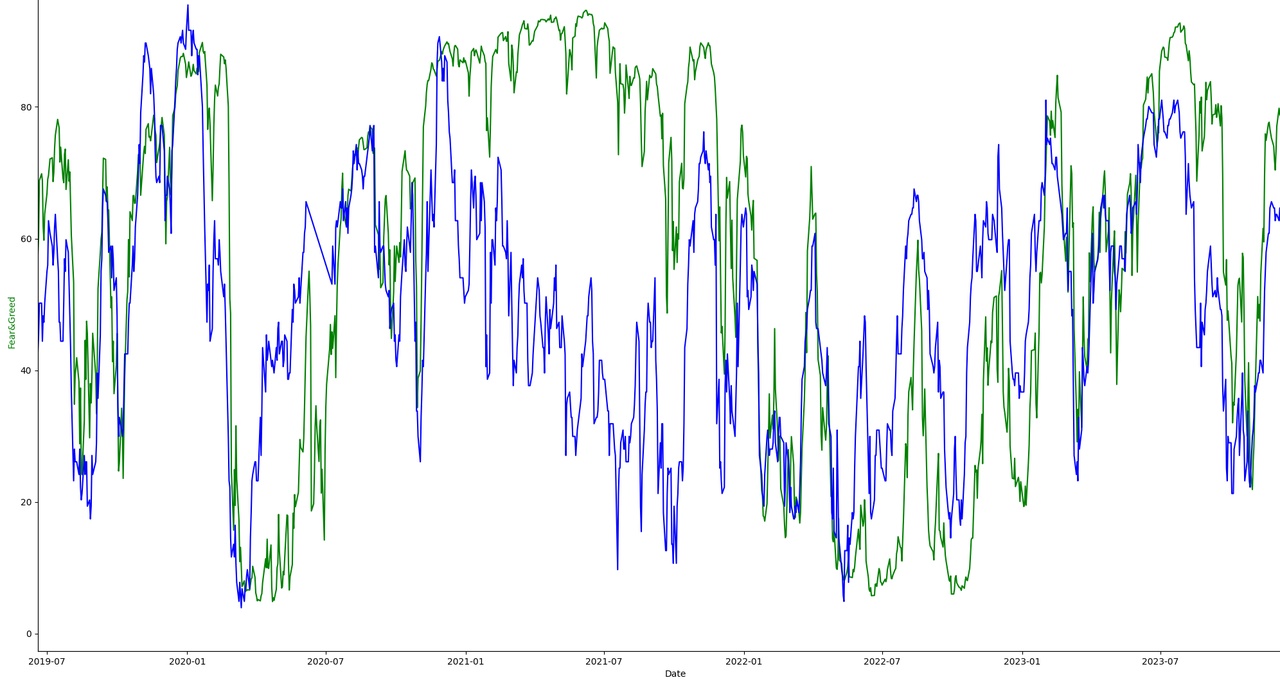I would like to tell you about my little project that has kept me busy over the last month :)
I'm a fan of sentiment indicators and I'm sure everyone here is familiar with the CNN Fear and Greed Index(1)
This index uses various indicators to determine how fearful or greedy market participants currently are.
However, there is not really any data going back very far, which is why I have created my own Fear and Greed Index. Firstly, it goes back to 2000 and secondly, it consists of more indicators that can be weighted manually.
This is my favorite weighting:

Which indicators are used?
The CNN Index uses the following:
(All "companies" always refer to S&P 500 $SPY (+0,85 %) companies)
- S&P500 Momentum (S&P500 $SPY (+0,85 %) Index against its 125 EMA)
- Stock Price Strength (companies at 52-week high vs 52-week low)
- Stock Price Breadth (volume of companies with price gains vs price losses)
- Put-call ratio (number of put vs. call options)
- Market Volatility (VIX $VIX vs 50 day EMA)
- Safe Haven Demand (Price Gains vs Bond Yields (10Y))
- Junk Bond Demand (Spread between Junk Bonds vs Treasury Yields)
I also use these indicators, including the following additional ones:
- University of Michigan: Consumer Sentiment (consumer sentiment survey)
- AAII Investor Sentiment (investor sentiment survey)
- Margin Debt Ratio (measures investment purchases on credit (leveraged positions))
- Insider Transactions (insider buying vs insider selling)
- 10Y Treasury Yield (coupon of the 10-year US bond)
- YieldCurve (Coupon of the 10Y - Coupon of the 2Y US bond)
the following indicators signal greed (higher values => greed):
- S&P500 $SPY (+0,85 %) well above 125 EMA
- Stock Price Strength (many companies at annual high vs. annual low)
- Stock Price Breadth (high volume on price gains)
- Safe Haven Demand (high price gains vs bond yields)
- Consumer Sentiment (good consumer sentiment)
- AAII Investor Sentiment (bullish investor sentiment)
- Margin Debt Ratio (high and highly leveraged positions)
- 10Y Treasury Yield (can also indicate a weak current situation in a recession, but I opted for the long-term positive outlook, which is indicated by a high yield)
the following indicators signal Fear (higher values => Fear):
- Put-call ratio (more bets on falling prices)
- Market Volatility (more volatility expresses nervousness)
- Junk bond demand (higher risk premium for junk bonds)
- Insider Transactions (higher BUYs as a signal of fear, as smart money is considered here. The highest buy/sell ratios were seen during recessions)
- YieldCurve (higher spread than a signal from Fear, often in recessions when short-term prospects are extremely poor, but in general I didn't find the indicator very good, which is why I no longer have it in the final version)
There is data that is available daily, while I only have access to others after 2 months, which is why my index generally lags behind CNN's Fear and Greed (CNN in BLUE, mine in GREEN):

(here I find CNN's index way too low in the 2021 tech boom period)
Currently, there is also a big divergence. While the CNN index has plummeted to 30 from 67, my index is still at 75 from 94.
I've been thinking about training an AI model that calculates a good investment strategy for me and optimizes the return or the Sharpe ratio (risk-adjusted return), for example. Here you could train on different ETFs. However, this will probably lead to overfitting (the model learns exact values from the past and not general strategies). Overfitting could perhaps be reduced somewhat by training on a random index, so the model has to find a strategy that can cope with a random ETF.
In general, it should be noted that the Fear and Greed Index only covers the US market. It probably works best on US indices $SPY (+0,85 %)
$CSNDX (+1,06 %) but global strategies should also work well, as the US share is usually over 60% $IWDA (+0,36 %)
$ACWI . Europe or EM probably have a slightly lower correlation $EXSA (-0,1 %)
$EIMI (+0,67 %)
Nevertheless, the US dominates the world and therefore a US sentiment index should also be a global sentiment index.
Maybe I'll make the index publicly available, we'll see.
Now it's your turn:
What would interest you in connection with this index?
What could be done differently, added, etc.?
I wish you all a Merry Christmas🌟🎄🌟




